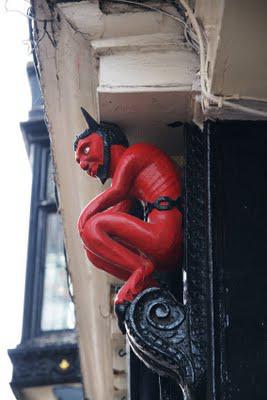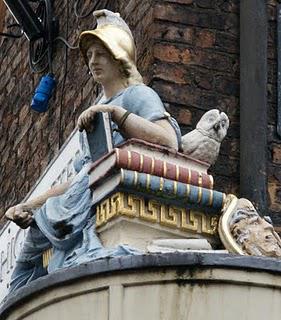 No one is quite sure why an apprentice printer was called a printer's devil, although there are a number of theories. Perhaps the most popular is that of the devil who lurked in every printer's premises, inserting errors into the type; when they weren't blaming him, more senior printers would blame the youngest apprentice instead. The printer's devil takes a more literal form in this carving on a former printer's shop in Stonegate, York. If there are any typos in this post ... blame him!
No one is quite sure why an apprentice printer was called a printer's devil, although there are a number of theories. Perhaps the most popular is that of the devil who lurked in every printer's premises, inserting errors into the type; when they weren't blaming him, more senior printers would blame the youngest apprentice instead. The printer's devil takes a more literal form in this carving on a former printer's shop in Stonegate, York. If there are any typos in this post ... blame him!
 The popularity of such visual signs is often connected to illiteracy, but both this and another of Minerva remind us that there were other reasons too. Minerva, goddess of wisdom, sits leaning against a pile of books with her owl at her elbow. Both books and owl remind us that she was goddess of wisdom and drama: hence her place on High Petergate, once known for its bookshops.
The popularity of such visual signs is often connected to illiteracy, but both this and another of Minerva remind us that there were other reasons too. Minerva, goddess of wisdom, sits leaning against a pile of books with her owl at her elbow. Both books and owl remind us that she was goddess of wisdom and drama: hence her place on High Petergate, once known for its bookshops.
It is likely that most customers of both printers and booksellers could have read textual signs (although their servants might not), but these conspicuous carved figures were especially useful before buildings were numbered. Addresses could be given as, for example, 'at the sign of the printer's devil'. The carving was also an advertisement and a way of catching the pedestrian's eye, just as barber's poles continue to be today.

